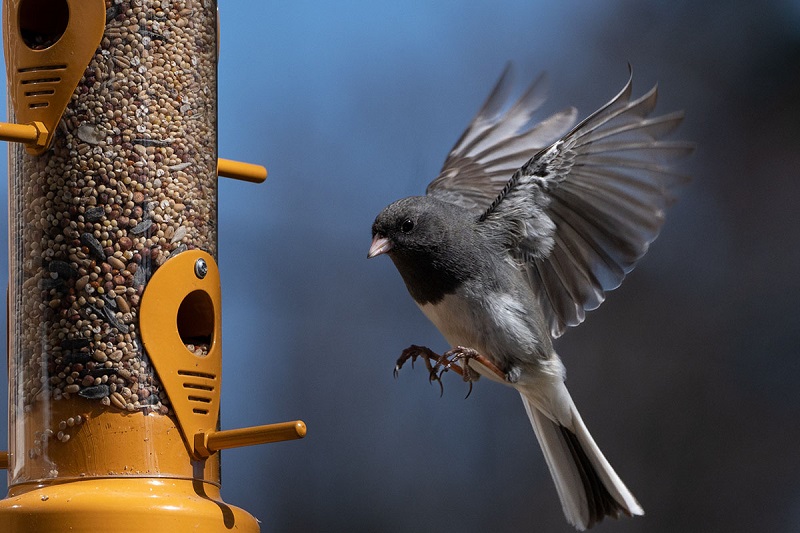EarthTalk®
From the Editors of E – The Environmental Magazine

If you think you are doing Mother Nature a favor by putting up a bird feeder or bird house, think again. Credit: Pexels.com.
Dear EarthTalk: Is putting out birdhouses and/or bird feeders good or bad for the local ecosystem? — Mary B., Bowie, MD
While putting up a bird house or bird feeder is a great way to attract birds to your property, the jury is out as to whether such attractions help or harm local biodiversity and overall ecosystem health.
On the plus side, birdhouses provide much-needed shelter for birds, especially in areas where natural nesting sites are scarce. They can also help to attract birds to your yard, which can be a fun and educational experience for children and adults alike.
Bird feeders can provide a valuable source of food for birds, especially during the winter months when natural food sources are scarce. This can help to boost bird populations and reduce the risk of starvation.
However, there are also some potential downsides to providing artificial nesting and feeding sites for birds.
One concern is that it can lead to overpopulation of certain bird species.
When birds have an abundance of food and nesting sites, they can reproduce more quickly, which can lead to an overpopulation of their species.
This can have negative consequences for the ecosystem, such as competition for food and habitat with other species.
And while hosting a birdhouse or feeder may be fun and educational, the birds you would attract aren’t the ones struggling in regard to conservation status.
“The species most in trouble are seabirds, shorebirds and tropical forest dwellers,” reports Emma Greig of the Cornell Lab of Ornithology.
“This means that although feeding birds may not be harmful to the species that use feeders the most, it also isn’t helpful to the species that most need our help.”
Another concern is that bird feeders can attract pests and diseases.
Birds can carry diseases that can be harmful to humans, such as salmonella.
They can also attract rodents, such as mice and rats, which can also carry diseases.
Finally, bird feeders sometimes attract predators, such as cats, raccoons and hawks, which can prey on the birds that are attracted to the feeders, which can reduce the bird population.
Overall, whether or not putting out birdhouses and bird feeders is good or bad for the local ecosystem depends on a number of factors, such as the type of birds that are being attracted, the location of the feeders, and the overall health of the ecosystem.
If you are considering putting out birdhouses or bird feeders, it’s important to do your research and make sure that you are doing it in a way that is beneficial to the birds and the environment.
For starters, choose the right type of birdhouse for the birds you want to attract, and place it in a safe and sheltered location. Also make sure it is somewhere you can access it safely as it can use regular cleanings to prevent the spread of disease.
And be sure to not overfeed the birds, as you don’t want to make them dependent on your handouts for sustenance. Monitor the bird population and remove any feeders if they are attracting pests or predators or causing other problems.
CONTACTS:
Analysis: Do Bird Feeders Help Or Hurt Birds? allaboutbirds.org/news/analysis-do-bird-feeders-help-or-hurt-birds/
To Feed or Not to Feed Wild Birds, fws.gov/story/feed-or-not-feed-wild-birds
Bird Feeders: Good or Bad for Wild Birds and the Environment? owlcation.com/stem/Bird-Feeders-Good-or-Bad-for-Wild-Birds-and-the-Environment
EarthTalk® is produced by Roddy Scheer & Doug Moss for the 501(c)3 nonprofit EarthTalk.
See more at https://emagazine.com
To donate, visit https://earthtalk.org
Send questions to: question@earthtalk.org
